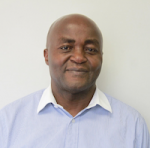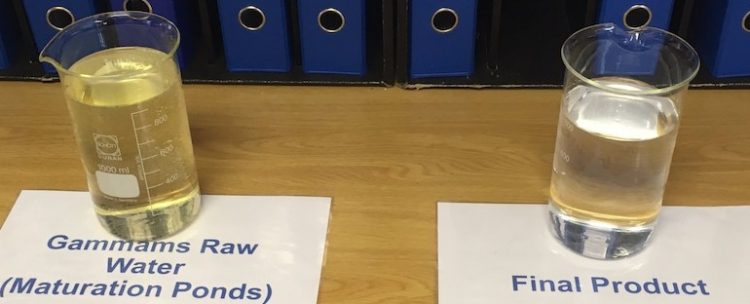Climate variability, coupled with Windhoek’s rapid population increase, poses a number of challenges to Namibia’s capital city – from water and energy shortages, to poor sanitation and waste management. To support decision-makers in addressing these challenges, a team at the University of Namibia investigated the links between water, livelihoods and governance in the context of urbanization in the city.
In early 2018, the city of Cape Town appeared on the first pages of international newspapers, counting down to “Day Zero”, the day that water supply would be so low that the city’s taps would run dry. Luckily, “Day Zero” did not materialize, and the water crisis slowly disappeared from the news.
Outside of the media spotlight, however, persistent water scarcity remains a real threat for a number of other cities such as Namibia’s capital, Windhoek. Like other countries in semi-arid regions, Namibia is characterized by variable and unpredictable rainfall patterns that lead to droughts and water scarcity. This climate variability, coupled with Windhoek’s rapid population increase, poses many challenges – from water and energy shortages, to poor sanitation and waste management, and related health problems.
As part of the FRACTAL project, and through a START grant, a team at the University of Namibia investigated water, livelihoods and governance in the context of urbanization and climate change in Windhoek. We asked Prof. John K.E. Mfune, Associate Professor and Head of Department of Biological Sciences, Faculty of Science, at the University of Namibia, to tell us more about the study.
“The combination of a changing climate and rapid urbanization is having an impact on water-stressed cities like Windhoek,” said John. “Understanding the link between governance, water security and livelihoods can help us move towards more sustainable management of water resources and advance approaches that increase the resilience of communities.”
“The study we developed in support of FRACTAL examined Windhoek’s water governance, and looked at the influence of drought on the sources that supply the city with water” continued John. “We provide modelling of hotspots of water demand and supply, as well as synthesized baseline data on water quantity trends for Windhoek’s sources of water. This data is very relevant to understand and incorporate climate information into the city’s decision-making.”
“For example, the Swakop River, which provides water to Windhoek, is increasingly experiencing severe droughts, posing a challenge for the growing urban and rural population of Windhoek and surrounding areas. Plans to ensure a sustainable water supply should consider the river’s cyclical droughts” explains John.
“As for water governance, we developed a case study on the Ujams Waste Water Reclamation and Treatment Plant, which treats water released from the northern industrial areas of Windhoek. This treatment plant not only addresses potential groundwater and environmental pollution, but also makes available treated water that can be reclaimed for irrigation or fed back to the industrial plants, relieving pressure on the city’s potable water supply.”
“In true FRACTAL fashion, we worked closely with various institutions and stakeholders, including the City of Windhoek, the Multidisciplinary Research Centre at the University of Namibia, and Namibia Water Cooperation (NamWater), the government-owned company that manages and supplies water in Namibia” explains John. “This co-production approach is new and unique in our field, but it is also key to make the research a success.”

Prof. John K.E. Mfune, Associate Professor and Head of Department of Biological Sciences, Faculty of Science at the University of Namibia
First published on ProSus Magazine, November 2019



